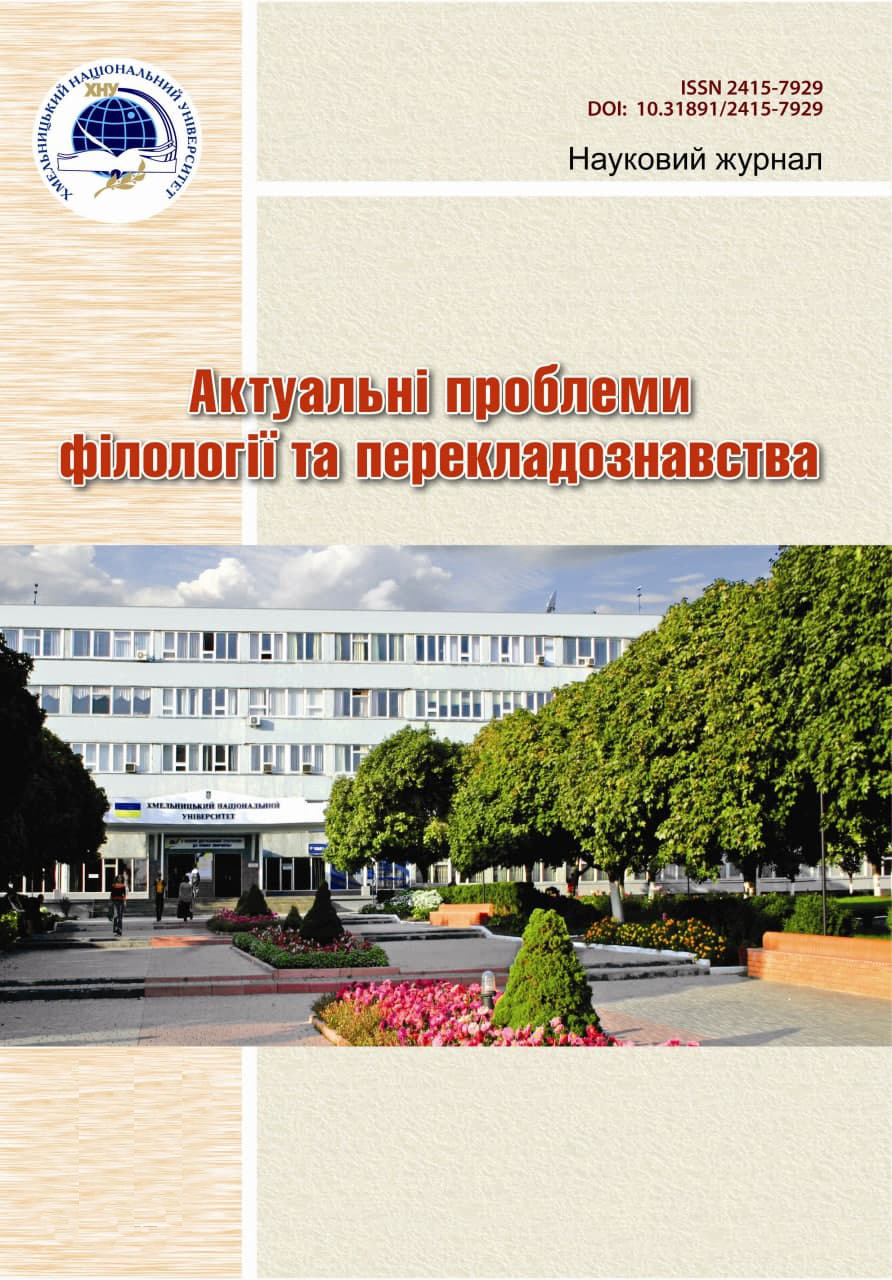EMERGENCE AND DEVELOPMENT OF TERMS «LEXICAL AND SYNTACTIC DERIVATION» IN UKRAINIAN WORD FORMATION
DOI:
https://doi.org/10.31891/2415-7929-2021-21-7Keywords:
derivation, parts of speech, lexical derivation, syntactic derivation, lexical meaning, syntactic function, transpositionAbstract
The article analyzes the stages of development of the content of the concepts «lexical and syntactic derivation» in traditional and modern research on Ukrainian word formation. The views of the French linguist S. Balli, who considered the word-forming process as a transposition of two types that allow the transition of signs from one class to another, have been studied. It is traced that later E. Kurylovich contrasted these two types of transposition as lexical and syntactic. Peculiarities of lexical and syntactic derivation interpretation in the concept of Polish linguist E. Kurylovych are determined. He described lexical derivation as a change in the lexical meaning of a derived word relative to the generative one by the invariance of their primary syntactic function, and syntactic derivation as the process of forming a derivative with a new syntactic function within the same lexical meaning. It is determined that the Polish linguist considered syntactic shifts to be a key indicator of derivational shifts, so he supported the syntactic concept. It is substantiated that E. Kurylovych initiated a new approach to distinguishing between two derivational aspects – lexical and syntactic. It is proved that the Polish linguist, the author of the term derivation, defines this process as two-stage. It is observed that the binary classification of derivatives of E. Kurylovich can be correlated with the classification of M. Dokulil, who divides derivatives into three classes: modification, mutation and transposition. It is substantiated that at the first level of classification all derivatives should be considered within two groups: transpositional and non-transpositional, respectively the former are divided into syntactic derivatives and mutational derivatives, and the latter into actual mutational and modification derivatives. It is determined that based on the classification of E. Kurуlovуch and M. Dokulil later linguists began to interpret syntactic derivatives as a special class of derived words, which are characterized by two-way, formal-semantic connection with the creative, dismemberment of semantic structure, the presence of word-forming meaning. The semantic-functional potential of lexical groups of syntactic derivatives is analyzed, in particular: names of actions, names of qualities, relative adjectives, adverbs derived from qualitative adjectives. It is traced that in Ukrainian linguistics I.I. Kovalik distinguishes between the concepts of morphological and word-forming derivatology, defining within the latter lexical and syntactic derivation. The newest functional approach to the interpretation of syntactic derivation in Ukrainian linguistics is characterized. It is determined that according to it the syntactic derivation goes through two stages: functional assimilation of some categories to others; morphological design of new syntactic functions of the category.
Downloads
Published
Issue
Section
License
Copyright (c) 2021 І. ДЕНИСОВЕЦЬ (Автор)

This work is licensed under a Creative Commons Attribution 4.0 International License.

